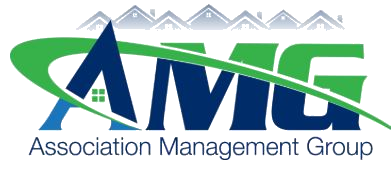As hurricane seasons become increasingly intense and unpredictable, it is crucial for homeowners associations (HOAs) to take proactive measures to protect their communities and residents. The Atlantic hurricane season, which typically runs from June to November, poses significant risks to coastal and inland areas alike. This blog post will provide valuable insights and recommendations on how HOAs can effectively prepare for the Atlantic hurricane season.
Develop an Emergency Preparedness Plan
One of the first steps for HOAs in hurricane preparation is to develop a comprehensive emergency preparedness plan. This plan should outline procedures for evacuation, communication, and coordination with local authorities. Identify evacuation routes, establish a safe meeting point for residents, and designate a communication system to keep residents informed before, during, and after a hurricane. Regularly review and update the plan to ensure its relevance and effectiveness.
Conduct a Risk Assessment
HOAs should conduct a thorough risk assessment to identify vulnerable areas and potential hazards within the community. Assess the structural integrity of buildings, roofs, windows, and doors, and take necessary steps to reinforce them if needed. Identify trees and branches that may pose a risk of falling during high winds and arrange for regular maintenance and trimming. Additionally, review the drainage systems and make necessary improvements to prevent flooding.
Secure Outdoor Items
Outdoor items such as patio furniture, grills, and trash cans can become dangerous projectiles during a hurricane. Create guidelines for residents to secure or remove these items before a storm approaches. Encourage residents to store such items in a secure location or bring them indoors. Reinforce the importance of adhering to these guidelines to prevent damage to property and minimize potential hazards.
Communicate and Educate Residents
Open and consistent communication is key to ensuring residents are well-informed and prepared for the hurricane season. Utilize multiple channels such as email, social media, community bulletin boards, and newsletters to disseminate important information, emergency protocols, and evacuation plans. Encourage residents to sign up for emergency alerts from local authorities and share resources like hurricane preparedness guides. Consider hosting educational workshops or inviting experts to discuss hurricane safety measures.
Coordinate with Local Authorities
HOAs should establish strong relationships with local emergency management agencies and stay connected with their latest updates and guidelines. Collaborate with these authorities to understand evacuation procedures, emergency shelters, and other essential services available in the community. This collaboration will help ensure a coordinated response and enable quick action in times of crisis.
Establish Emergency Contacts
Maintain an updated list of emergency contacts for residents, including local authorities, utility companies, insurance providers, and community volunteers. Share this information with all residents and emphasize the importance of keeping it easily accessible. Encourage residents to create personal emergency kits containing essential supplies such as water, non-perishable food, flashlights, batteries, and first aid items.
Conduct Regular Drills and Training
Practicing emergency drills and conducting training sessions can significantly enhance residents' preparedness and response during a hurricane. Organize mock evacuation drills, familiarize residents with emergency routes, and provide guidance on essential tasks such as shutting off utilities and securing properties. These drills help residents become more confident and efficient in executing emergency plans when the need arises.
Conclusion
Preparing for the Atlantic hurricane season is a responsibility that falls on both HOAs and residents. By following these recommended steps, HOAs can significantly enhance their communities' readiness and resilience in the face of hurricanes. Remember, early preparation and proactive measures are the key to minimizing damage, ensuring safety, and promoting the overall well-being of residents during hurricane events. Stay informed, communicate effectively, and work together with local authorities to protect your community.





































